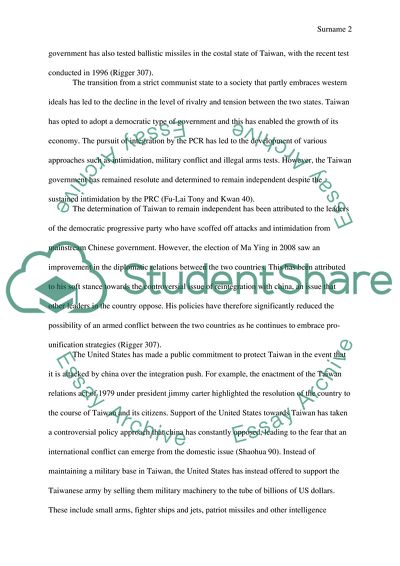Cite this document
(China-Taiwan Conflict Case Study Example | Topics and Well Written Essays - 3250 words, n.d.)
China-Taiwan Conflict Case Study Example | Topics and Well Written Essays - 3250 words. https://studentshare.org/politics/1852585-taiwan-issue-chinese-government-ways-to-solve-it-history-and-future
China-Taiwan Conflict Case Study Example | Topics and Well Written Essays - 3250 words. https://studentshare.org/politics/1852585-taiwan-issue-chinese-government-ways-to-solve-it-history-and-future
(China-Taiwan Conflict Case Study Example | Topics and Well Written Essays - 3250 Words)
China-Taiwan Conflict Case Study Example | Topics and Well Written Essays - 3250 Words. https://studentshare.org/politics/1852585-taiwan-issue-chinese-government-ways-to-solve-it-history-and-future.
China-Taiwan Conflict Case Study Example | Topics and Well Written Essays - 3250 Words. https://studentshare.org/politics/1852585-taiwan-issue-chinese-government-ways-to-solve-it-history-and-future.
“China-Taiwan Conflict Case Study Example | Topics and Well Written Essays - 3250 Words”. https://studentshare.org/politics/1852585-taiwan-issue-chinese-government-ways-to-solve-it-history-and-future.


